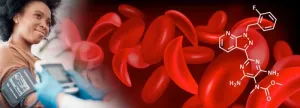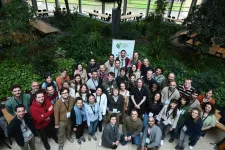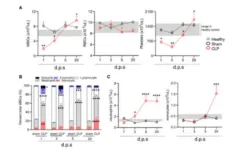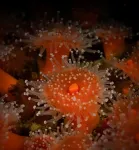– By Lauren Core
The National Alliance for Water Innovation (NAWI), which is led by the Department of Energy’s (DOE) Lawrence Berkeley National Laboratory (Berkeley Lab), has been extended for five more years with $75 million in funding from DOE. NAWI will continue its contributions to helping decarbonize the water and wastewater sectors through investments in technologies that enhance the efficient use of energy for water use, treatment, and distribution.
“Water and energy are interdependent – water is used to produce nearly every major energy source, and energy is critical to transporting and treating water,” said Jeff Marootian, Principal Deputy Assistant Secretary in the Office of Energy Efficiency and Renewable Energy. “The deep connection between these two resources demands an integrated approach that considers the challenges and opportunities inherent to both sectors. The Department of Energy is proud to be leading the nation’s efforts to decarbonize the water economy, while ensuring a secure water future for communities nationwide.”
Over the next five years, NAWI is shifting its focus to include regional water systems planning - and will partner with water planners at the state and regional level to develop and use new tools for water supply forecasting, water demand forecasting, and water portfolio optimization. NAWI will also spearhead water resilience pilot projects and implement regional water system workshops. These new directions will enable NAWI to continue to accelerate breakthroughs towards a circular water economy, where water is treated to fit-for-purpose standards and reused locally, rather than transporting freshwater long distances.
“Desalination and innovative water treatment technologies hold great promise for helping us meet our planet’s growing demand for one of our most precious resources: water,” says Mike Witherell, Director of Lawrence Berkeley National Laboratory. “The Department of Energy’s renewed support for NAWI enables the continuation of cutting-edge research and development which is needed to not only treat unconventional sources of water for re-use but to lower their cost and energy use.”
Over the past five years, NAWI has supported a robust research portfolio with 60 original and innovative research and development projects that span analysis for water-energy grid integration to the development of algorithms, models, and adaptive process controls for resilient operations. In addition, NAWI has supported the implementation of 11 pilot projects that have begun work demonstrating some of these innovative technologies in real-world environments. NAWI has also developed the NAWI Alliance with over 1,670 members, and partnered with over 420 leading industry, academic, and government stakeholders. NAWI has also developed a suite of knowledge products, including a master roadmap and series of industry-specific roadmaps to prioritize the highest impact technology options, and its 60 projects support those priorities. To date, NAWI researchers have published more than 100 articles in high-impact research journals.
“Our research program remains steadfast in its commitment to reducing the price, energy cost, and greenhouse gas emissions of new water technologies,” said Peter Fiske, Executive Director of NAWI. “Our work also bridges cutting-edge research with real people and places, such as producing secure, reliable, and affordable water for communities that are most in need.”
NAWI’s plan for the next five years aligns well with the California's Water Supply Strategy (WSS) – Adapting to a Hotter Drier Future, which outlines a strategy and priority actions to adapt and protect water supplies from the effects of rising temperatures and drier conditions due to climate change. It also aligns with the updated California Water Plan that demonstrates how planning at the watershed scale provides the most comprehensive solutions for climate-resilient water supplies for all Californians. The NAWI program will significantly contribute to the implementation of the updated water plan, demonstrating novel methods for water reuse at the community and premise scale, along with further advancing key reuse technologies such as desalination and fit-for-purpose treatment.
“Securing a more resilient water future for California means investing and building meaningful relationships with key partners like NAWI. This collaboration will help drive innovation for new, affordable water supplies for a more water resilient future for generations to come,” said California Department of Water Resources Director Karla Nemith.
Throughout the next five years, NAWI will remain committed to the principles of Inclusion, Diversity, Equity, and Accountability (IDEA). NAWI’s pilot projects will continue to treat unconventional water sources to provide usable water in real-world environments. Some of the pilot projects will partner directly with communities and groups that have historically been underserved by existing water supplies. Each project will also generate a range of data sets usable by other researchers seeking t o advance the field of data analysis and automation, and fault detection in water treatment systems.
“The next five years present an invaluable opportunity to deliver impact aligned with NAWI’s pipe parity metrics and further the country towards net-zero emissions by 2050,” said Fiske.
NAWI will continue to be supported by the DOE Office of Energy Efficiency & Renewable Energy’s Industrial Efficiency and Decarbonization Office.
NAWI is a research program and public-private partnership supported by the United States Department of Energy in partnership with the California Department of Water Resources and the California State Water Resources Control Board. NAWI brings together a world-class team of industry and academic partners to examine the critical technical barriers and research needed to radically lower the cost and energy of desalination. NAWI is led by DOE’s Lawrence Berkeley National Laboratory in collaboration with National Energy Technology Laboratory, National Renewable Energy Laboratory, and Oak Ridge National Laboratory, and is funded by the Office of Energy Efficiency and Renewable Energy’s Industrial Efficiency and Decarbonization Office and Water Power Technologies Office.
###
Lawrence Berkeley National Laboratory (Berkeley Lab) is committed to delivering solutions for humankind through research in clean energy, a healthy planet, and discovery science. Founded in 1931 on the belief that the biggest problems are best addressed by teams, Berkeley Lab and its scientists have been recognized with 16 Nobel Prizes. Researchers from around the world rely on the Lab’s world-class scientific facilities for their own pioneering research. Berkeley Lab is a multiprogram national laboratory managed by the University of California for the U.S. Department of Energy’s Office of Science.
DOE’s Office of Science is the single largest supporter of basic research in the physical sciences in the United States, and is working to address some of the most pressing challenges of our time. For more information, please visit energy.gov/science.
END




